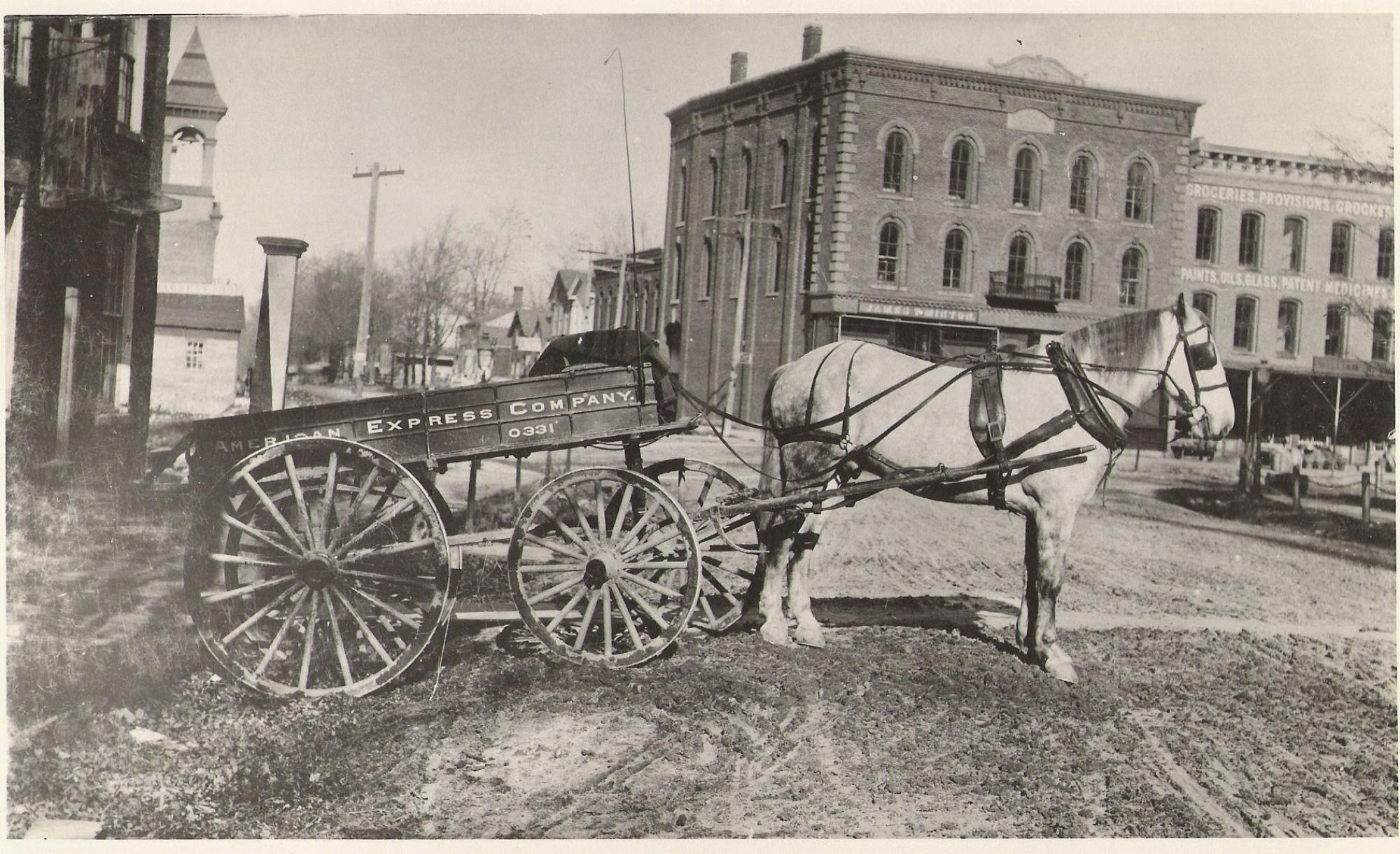Early History
The first Europeans to visit Westfield were French explorers interested in finding a water route between the Great Lakes and Ohio River systems. None exists, but in 1615 Etienne Brule found the next best thing when he discovered that only a short eight miles separate Lake Erie and Chautauqua Lake between the present towns of Westfield and Mayville. Indians had used the same path for centuries, but the French soon established their own trail that started in Barcelona Harbor, followed Chautauqua Creek for several miles, then ran over an escarpment to current-day Mayville. This trail remained in use more than 130 years, and today is known as the Old French Trail or, more commonly, the Portage Trail.
Settlement
The first European settlers came to Westfield in 1802 with the arrival of the McMahan family, and more followed on their heels. The early village was known as the “Cross Roads” because it lay at the intersection of the Portage Trail and the road between Buffalo, New York and Erie, Pennsylvania.
Chautauqua County at that time was blanketed with great hardwood forests and the first industry in Westfield arose to process this timber as it was cleared to create farmland. The main products were pot and pearl ashes and black salts produced by burning the trees, which could be shipped to the emerging cities in Pittsburgh and Montreal and also across the Atlantic Ocean to the ports of Europe. Sawmills, gristmills, textile mills and other manufactories eventually grew up around Chautauqua Creek to serve the burgeoning population. John McMahan's grist mill, built in 1804 at the mouth of Chautauqua Creek, was dismantled during the War of 1812 to prevent it from falling into the hands of the British. The millstones can be seen at the entrance to the Patterson Library.
The opening of the Erie Canal in 1825 gave manufacturers a faster route to markets on the Atlantic coast and in Europe, and it was soon followed by the railroads, which opened up trade routes with markets both to the east and west.
Grape Juice Capital of the World
The most important agricultural product in Westfield’s history arrived in 1859 in the form of the Concord grape. Though it was popular as a table grape, the production of the Concord rose to new heights when Dr. Charles Welch popularized the consumption of pasteurized grape juice. This product was introduced to a wide audience at the World’s Columbian Exposition held in Chicago in 1893, and it quickly became a popular drink across the nation. In 1897 Dr. Welch built the world’s first large grape juice plant in Westfield and Westfield quickly became known as “The Grape Juice Capital of the World.” Today, Chautauqua County is the largest grape growing county outside of California, with approximately 20,000 acres devoted to vineyards. Some grape growers have transitioned to winemaking and the town is home to several well-known labels.
Grace Bedell
Westfield is home to the Westfield Republican, the first Republican newspaper established soon after the Republican Party formed in 1854. Westfield also was the home of Grace Bedell, a young girl who changed the face of the 1860 Presidential campaign, or, more accurately changed the face of Republican candidate Abraham Lincoln. Grace went to see Candidate Lincoln at a campaign stop and later sent him a pithy letter suggesting that he could garner more votes by growing whiskers. Lincoln took the message to heart and began to grow a beard immediately and just a few weeks later won the election. President-Elect Lincoln later stopped in Westfield and specifically asked to meet the young lady who had advised him to grow whiskers. Their meeting is depicted in statues adorning a small park in the Village of Westfield.
Today
Our grape heritage remains vibrant today with much of Westfield’s agricultural acreage still devoted to grape. New wineries continue to open and several large manufacturers rely on grapes produced in Westfield, including Mogen-David Wine and Grower’s Cooperative Grape Juice Company. Other major employers include Renold Engineered Products, Plantrol Systems, Fairpoint Communications, Westfield Memorial Hospital, and Westfield Family Physicians.
The Village of Westfield retains a quaint historical housing stock and has established two historical districts to help preserve the integrity of the Portage Trail and the Main Street districts. Homes in the Town are being built in newly-established water districts along Lake Erie and overlooking the lake vista along the escarpment.
Tourism and recreational opportunities abound in Westfield, including Barcelona Harbor, which is one of only three harbors along Lake Erie in New York State, and Chautauqua Creek, which is home to healthy runs of steelhead trout and which offers hiking and camping opportunities as well.
